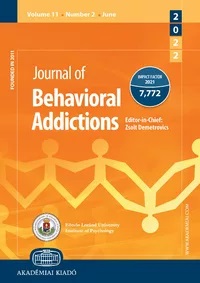Compulsive Sexual Behavior Disorder should not be classified by solely relying on component/symptomatic features • Commentary to the debate: “Behavioral addictions in the ICD-11”
Compulsive Sexual Behavior Disorder should not be classified by solely relying on component/symptomatic features • Commentary to the debate: “Behavioral addictions in the ICD-11”
Author(s): Jesús Castro-Calvo, Maèva Flayelle, José C. Perales, Matthias Brand, Marc N. Potenza, Joël BillieuxSubject(s): Behaviorism
Published by: Akadémiai Kiadó
Keywords: compulsive sexual behavior; classification; nosology; addictive behavior; components model of addiction; compulsive behavior; impulsive behavior; psychological processes
Summary/Abstract: The paper by Sassover and Weinstein (2022) contributes to a timely and complex debate related to the classification of Compulsive Sexual Behavior Disorder (CSBD). The recent inclusion of CSBD as an impulse-control disorder in the ICD-11 has generated debate since a competitive view is that CSBD should rather be classified as an addictive disorder. Sassover and Weinstein (2022) reviewed existing evidence and concluded it does not support the conceptualization of CSBD as an addictive disorder. Although we agree regarding the relevance and timely nature of considering the classification of CSBD, we respectfully disagree with the position that relying on the components model of addiction (Griffiths, 2005) is the optimal approach for determining whether or not CSBD is an addictive disorder. In this commentary, we discuss potential pitfalls of relying on the components model to conceptualize CSBD as an addictive disorder and argue that considering a process-based approach is important for advancing this timely debate.
Journal: Journal of Behavioral Addictions
- Issue Year: 11/2022
- Issue No: 2
- Page Range: 210-215
- Page Count: 6
- Language: English

